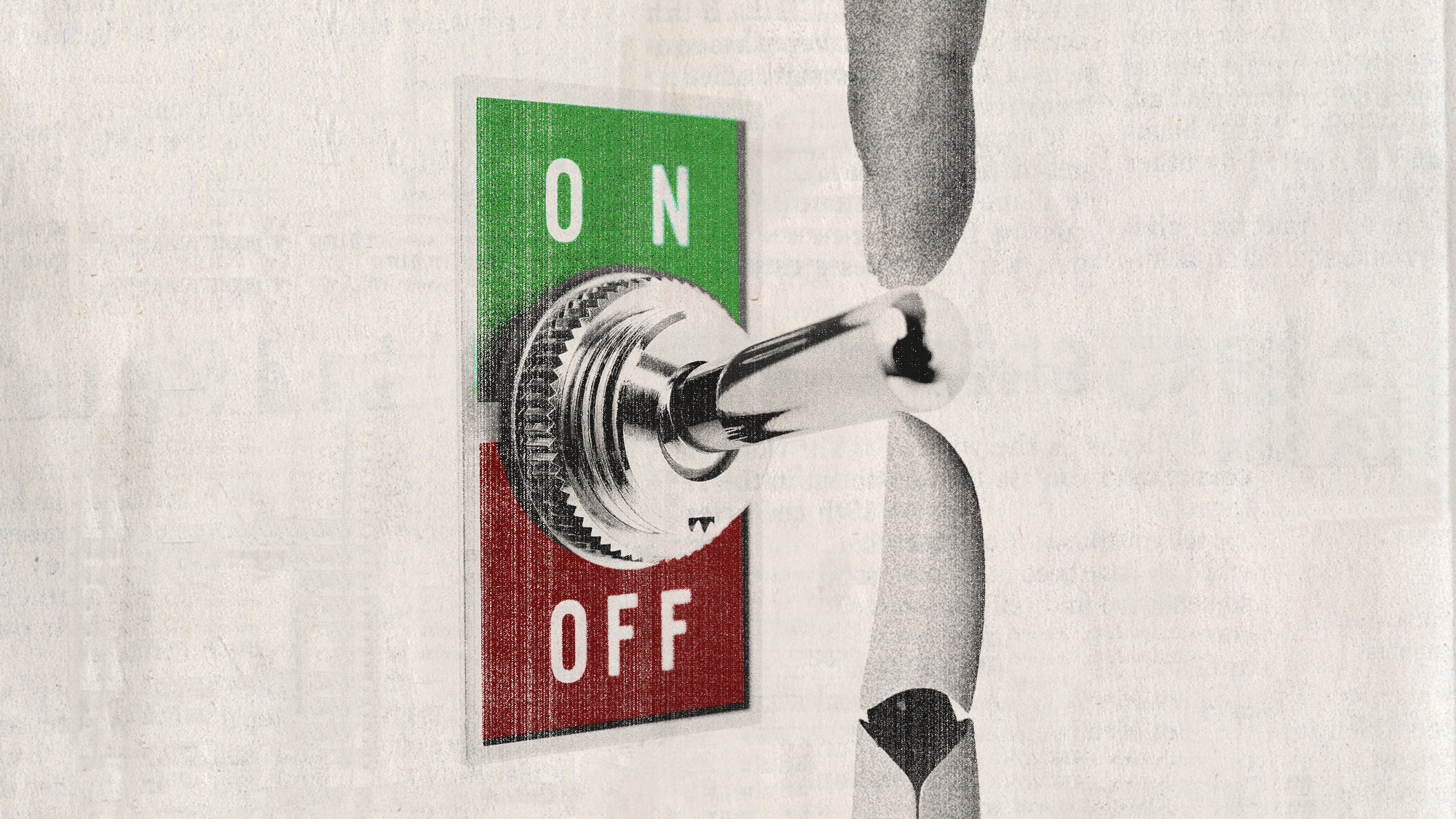Why Google search results have 'gotten worse'
Search engines are 'flooded' with 'garbage' content, say experts

A free daily email with the biggest news stories of the day – and the best features from TheWeek.com
You are now subscribed
Your newsletter sign-up was successful
If you've been thinking that Google's search results are not what they used to be, a team of scientists in Germany may have worked out why.
Google's search function "really has gotten worse", said 404 Media, which broke news of the study's finding that significant amounts of search engine results were now spam. The news has led an expert to call for a "foundational rethink of web search engines".
Cat-and-mouse game
A group of academics from Leipzig and Bauhaus universities and the Center for Scalable Data Analytics and Artificial Intelligence posed the question "Is Google Getting Worse?", and examined 7,392 product review queries on Google, and rival companies Bing and DuckDuckGo, for a year.
The Week
Escape your echo chamber. Get the facts behind the news, plus analysis from multiple perspectives.

Sign up for The Week's Free Newsletters
From our morning news briefing to a weekly Good News Newsletter, get the best of The Week delivered directly to your inbox.
From our morning news briefing to a weekly Good News Newsletter, get the best of The Week delivered directly to your inbox.
They found that a significant amount of results, returned in response to product-related queries, were "outright SEO product review spam". Spam sites are "hyper prevalent", said Mashable, and showing up at the top of Google's rankings in what is "a constant battle" between the sites and search engine.
The researchers concluded that "search engines seem to lose the cat-and-mouse game that is SEO spam". Their two findings for "Google specifically" were that higher-ranked pages are on average "more optimised, more monetised with affiliate marketing, and they show signs of lower text quality", said Search Engine Round Table, and that Google's attempts to target the spam have a "mostly short-lived effect".
"Fundamentally, Google cannot differentiate good content from mediocre content, which leaves it open to manipulation," Barry Adams, a search expert at Polemic Digital, told The Times.
The "sheer scale" with which the web can be "flooded with superficially acceptable content" has "shifted the balance of power", he said, adding that a "foundational rethink of web search engines is required to restore the quality of search".
A free daily email with the biggest news stories of the day – and the best features from TheWeek.com
This is not the first time Google has been accused of losing the battle with spam. Last month, Search Engine Journal reported that Google was "apparently struggling to contain a spam attack" that had been "ongoing for days", with many domains "ranking for hundreds of thousands of keywords each".
And it might get worse
The trend comes as the internet is "flooded with low-effort garbage from SEO farms and affiliate link sites", said The Register, and things are "probably only going to get worse with the advent of generative AI", they added because new technology is "able to pump out low-quality copy in an instant". So the internet is "on pace to become further flooded by garbage".
Google is having none of it. The search giant's PR teams "promise its flagship product is best in class" and that, "in fact", Google Search is "better than ever".
Speaking to Mashable, a spokesperson said: "This particular study looked narrowly at product review content, and it doesn’t reflect the overall quality and helpfulness of Search for the billions of queries we see every day."
The company has "launched specific improvements to address these issues" and "numerous third parties" found Google to be of "significantly higher quality" than its rivals.
Chas Newkey-Burden has been part of The Week Digital team for more than a decade and a journalist for 25 years, starting out on the irreverent football weekly 90 Minutes, before moving to lifestyle magazines Loaded and Attitude. He was a columnist for The Big Issue and landed a world exclusive with David Beckham that became the weekly magazine’s bestselling issue. He now writes regularly for The Guardian, The Telegraph, The Independent, Metro, FourFourTwo and the i new site. He is also the author of a number of non-fiction books.
-
 How the FCC’s ‘equal time’ rule works
How the FCC’s ‘equal time’ rule worksIn the Spotlight The law is at the heart of the Colbert-CBS conflict
-
 What is the endgame in the DHS shutdown?
What is the endgame in the DHS shutdown?Today’s Big Question Democrats want to rein in ICE’s immigration crackdown
-
 ‘Poor time management isn’t just an inconvenience’
‘Poor time management isn’t just an inconvenience’Instant Opinion Opinion, comment and editorials of the day
-
 Will AI kill the smartphone?
Will AI kill the smartphone?In The Spotlight OpenAI and Meta want to unseat the ‘Lennon and McCartney’ of the gadget era
-
 Data centers could soon be orbiting in space
Data centers could soon be orbiting in spaceUnder the radar The AI revolution is going cosmic
-
 AI griefbots create a computerized afterlife
AI griefbots create a computerized afterlifeUnder the Radar Some say the machines help people mourn; others are skeptical
-
 Inside a Black community’s fight against Elon Musk’s supercomputer
Inside a Black community’s fight against Elon Musk’s supercomputerUnder the radar Pollution from Colossal looms over a small Southern town, potentially exacerbating health concerns
-
 Has Google burst the Nvidia bubble?
Has Google burst the Nvidia bubble?Today’s Big Question The world’s most valuable company faces a challenge from Google, as companies eye up ‘more specialised’ and ‘less power-hungry’ alternatives
-
 Spiralism is the new cult AI users are falling into
Spiralism is the new cult AI users are falling intoUnder the radar Technology is taking a turn
-
 Microsoft pursues digital intelligence ‘aligned to human values’ in shift from OpenAI
Microsoft pursues digital intelligence ‘aligned to human values’ in shift from OpenAIUNDER THE RADAR The iconic tech giant is jumping into the AI game with a bold new initiative designed to place people first in the search for digital intelligence
-
 AI models may be developing a ‘survival drive’
AI models may be developing a ‘survival drive’Under the radar Chatbots are refusing to shut down